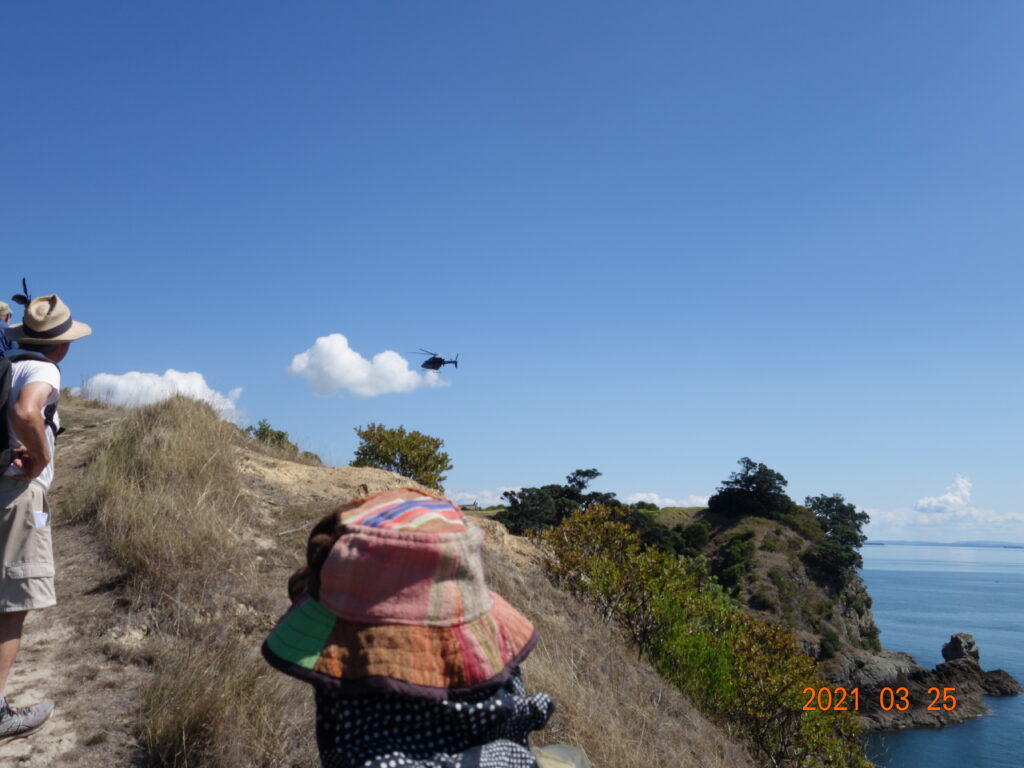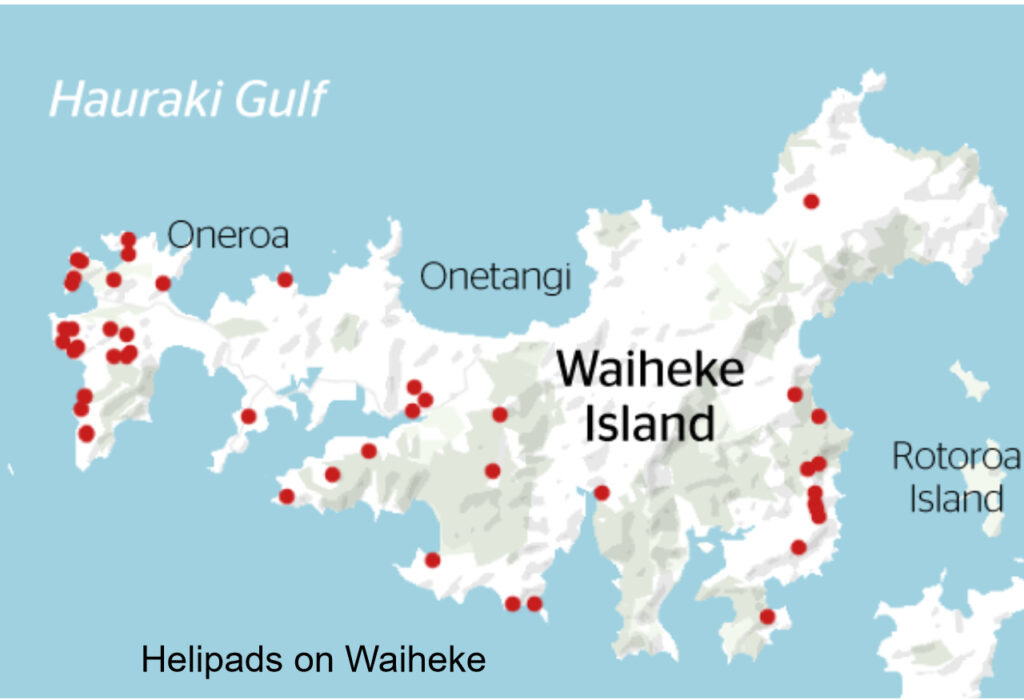It’s time for action to sort out helipad consents

Helicopters and helipads, the disturbance they cause, the ear-shattering intrusion on neighbours’ quiet enjoyment of their homes and properties has been a problem on Waiheke for well over ten years now, especially problematic over the summer holiday period.
Waiheke is not alone. There have also been several high profile cases in recent years on the city mainland notably in Herne Bay and Westmere where neighbours and residents’ associations have battled (and are still battling) resource consents for private helipads for ‘rich-listers’. And even on remote Great Barrier Island over the last two years or so, there has been a rash of helipad consents, 10 granted on the island, much to the dismay of neighbours and the Aotea-Great Barrier Local Board. What these places have in common is that they are all located within the Waitematā and Gulf ward which I represent. What they don’t have in common is that Waiheke and Barrier are covered by the still operative Hauraki Gulf Islands District Plan (HGIDP) while Waitematā is covered of by the Auckland Unitary Plan (AUP). A further complication is that for the islands, helipads are deemd ‘restricted discretionary activities’ almost as it were ‘as of right’, whereas in the AUP the activity is ‘non-complying’ which means permissible but with a high degree of regulator scrutiny. In other words helipads are less restricted on the islands than in the city. This apparently deliberately so as the planners at the time felt a permissive approach would promote tourism. Despite these differences, public opposition to helipads is just as strong in the city as it is on the islands. The problem will not go away and unless something is done about it is surely only going to get worse.

Last March, I managed to get a resolution passed at the Planning, Environment and Parks committee which requested officers to report back on how a plan change making new helipads a prohibited activity in the Hauraki Gulf Islands District Plan and the Auckland Unitary Plan could be provided for in the council budget. It was an opening shot and it was carried 14 votes to six.
I should point out that budgeting is never an issue when it comes to plan changes that council officers want or support. Concerns about or even mention of the budget in my experience only becomes an issue when management wishes to put a damper such initiatives. But as it turns out, despite the clear direction of the resolution, officers have slow-walked any response.
Another difficulty is the political situations within the three Local Boards. City-based Waitematā, Waiheke and Aotea/ Great Barrier are in their way all quite different. Aotea Great Barrier has always been staunchly supportive of prohibited activity for helipads in settlement (residential) areas. Waitematā Local Board had in the past supported prohibited activity but just before the planning committee meeting in March, referred to above, was persuaded by council officers to abandon that position. And Waiheke has tended to focus its efforts on better monitoring of existing consents. Waiheke’s inclination for a plan change in the past has been to align Waiheke to the city’s ‘non-complying’ activity’rule. In November given the bureaucratic foot-dragging, and with the end of the year coming on, I decided to lodge a notice of motion to the November planning committee. But focussing on Great Barrier alone. The motion called for a plan change prohibiting new helipads in settlement areas on Aotea. However after mulling it over for some days, finding the political mood a little uncertain, my instincts led me to pull it in the meantime- and to have another go in the New Year. Just as well, because in December, at least partially prompted by my lobbying – the Waitematā Board unanimously opted for prohibited activity. This is important because political representation in that Local Board is made up of both City Vision (Labour/Greens) and C&R (National). The cross-party consensus is not only good in itself but will be very important in encouraging Governing Body members of those political alignments, to maintain the direction expressed in the March 2023 committee decision.
But where does that leave Waiheke? As pointed out Waiheke Local Board has focussed on improving monitoring and compliance of helipads rather than stopping them. At the same March 2023 meeting chair Cath Handley helped persuade the committee to adopt the National Planning Standard (2019) for measuring helicopter noise. Waiheke Local Board supported by ‘Quiet Sky Waiheke’ has also pinned its hopes on an interpretation of the NZ Coastal Policy Statement to inform a plan change as a means to restricted helipads. In my long experience of regional and national policy statements, both council planners and private planners can drive a horse and cart through any well-meant, non-prescriptive policy statement, however hopefully interpreted. It’s what the district plan says the counts in the end.
Waiheke is interestingly also the odd-one-out of the three in a different way. Great Barrier and Waitematā both support the simple solution of prohibiting helipads in residential areas. Sensibly helicopters for rural activities such as annual top dressing etc are valid activities. But here on Waiheke things are not so simple as most of the demand for helipads comes from ‘rural’ lifestyle blocks and vineyards. Therefore rather than the simple approach of banning helipads from residential areas, a more targeted approach would be needed. Perhaps restricting helipads to genuine rural activities e.g. top dressing. The Waiheke Local Board in December passed a comprehensive resolution which included the word ‘prohibited’. The best approach would be to amend both plans to make the default position ‘non-complying’ for areas which are not residential and ‘prohibited activity in residential areas.
I will be engaging with the Cath Handley and members over the summer break on how to move forward. I am sure placing limits on the spread of helipads on Waiheke, now over 60 of them, will have overwhelming support from the people of Waiheke, Waiheke should not be the odd one out.
A version of this article was published as an editorial in the 11 January 2024 issue of Gulf News



